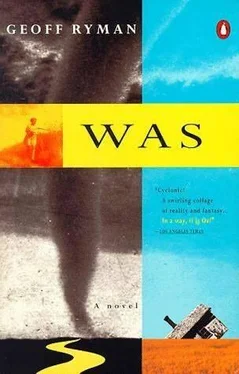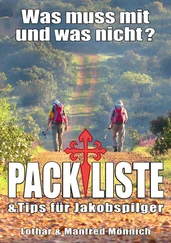"Why?" whispered Dorothy in horror.
"Oh! Because the South wanted to own slaves. They wanted to own people like dogs. And because of them the whole country had to go to war!"
"Why did they kill children?" Dorothy asked.
"Because their minds were twisted. They were so deep in evil, they couldn't find a pathway out. The glorious South. And your mother went to live there! In Missouri, St. Louis, the city that tried to stop us from even getting to Kansas. She has to go and move there, not four years after the ashes of Lawrence were finally cold."
Dorothy could not remember a war. She could not remember anyone in Missouri killing people. But it would seem that her mother had lied to her, not to tell her this.
"How could she do it to us?" said Aunty Em, helpless with anger and unhappiness. "Go off to St. Louis with that man."
Dorothy's mother was a bad woman. Dorothy had no idea her mother had been that bad. She began to be afraid that she was bad, too.
"Those Southerners owe every Union family five hundred dollars at least. Clemency indeed! You let them go and look what you have. Outlaws, that's all they are. You hear of the James gang, Dorothy?"
Dorothy shook her head.
"Murderous, thieving scoundrels. They were Southerners. They were there in Lawrence that very night. They were there, killing children. They ought to have been hunted down like dogs."
Aunty Em drew in a long, shuddering breath, and Dorothy hung her head and picked at her nails. "God forgive me. But that's what I feel."
It had been a beautiful day, and Dorothy had been happy. She had thought she was going to be happy. She began to cry now, for the horrible thing she didn't understand, and for the promise of happiness that seemed to have been broken.
"Oh, honey, I'm sorry," said Aunty Em. The sight of the child crying, crying for the right reason, crying for the reason Aunty Em wanted her to weep, moved her beyond measure. "We won't talk about that. We won't talk about that anymore. It's just too nice a day to spoil."
Aunty Em stopped the wagon and enfolded Dorothy in her sweaty hug. It seemed to the child that the very earth was bleeding. What other terrible secrets were there? She could imagine the terror, being in your own house, and having to run from bad men who wanted to kill you.
"I'm not a Southerner," said Dorothy.
"No, honey, of course you're not."
"But I lived in Missouri!"
"Well, that wasn't your fault. Your mother went to live there, and you were born there."
"But they still kill people!"
"Yes, but that's only a few of them. Now hush, there's no need to be scared now, the war's over."
Dorothy wasn't weeping because she was frightened; she was weeping because it had happened at all. Didn't Aunty Em understand that?
Aunty Em kept her bony arms around her. "We're going to Meeting," she said. "Meeting's in a big white tent."
How could a big white tent make up for murder?
"And there's going to be lots of singing, and we'll meet some nice new friends who'll be so happy to see you."
"Did my papa kill anybody?" Dorothy asked.
"No, honey. He was an Easterner."
"Is that the same as North?"
Aunty Em's face was crossed. "Yes," she decided.
"But St. Louis is East and people call that the South."
Aunty Em sighed. "Honey. Kansas is right in the middle, where North and South and East all meet." She went into a long explanation, of halves of the country, but it still wasn't clear. Then Dorothy understood. In Kansas, North and South and East and West were ways of calling the same thing good or bad, depending on how you felt about it. Dorothy's father had been from the North, but he was bad, so he was East, that's all.
"Am I from the North or the East or the South?" she asked.
"Well now, I'd say you were from the West," said Aunty Em.
They rode on, to the base of the hills. Roadrunners darted across their path. Birds with bright yellow breasts and black bibs sat on fence posts and sang. Their song was loud and very slightly harsh. Aunty Em sighed and said something very strange. "Guess neither of the Branscomb girls married very well," she said and shook herself, as if out of a dream.
They moved out of the fields and into the woods of Prospect. The eastern slope was covered with trees, but on top, the hill was smooth and windswept and crowned with a few low evergreens.
Down below, to the right, there were the orderly, patterned fields of corn and the straight surgical scar made by the MA &BRR. Beyond the train tracks was a line of tall willows, oaks and sycamores, marking the Kansas River. Only half hinted at amid the clouds of green was another rise, another hill on the St. George side.
To the people of Manhattan, this was still Zeandale, but to Dorothy, it was another country. Oak Grove, she called it, after its school-house. There was always a breeze through that valley as if the river itself were breathing. On the wind, buzzards or hawks with huge wings were carried, their feathers spread like grasping hands. "Look!" Aunty Em exclaimed and pointed. A heron flew overhead.
Dorothy turned in the cart and looked behind her. Where the river curved inward, a line of trees seemed to reach out and meet the wooded slopes of Mount Prospect to form a nearly solid wall of green, except for one narrow passage. You would never guess there was an even broader, flatter valley beyond it, with Sunflower School and her aunty's house. Aunty Em called the passage the Gate, even though you never noticed when you were riding through it. Beyond the Gate, there were blue-gray hills, rolling off into the eastern distance, bald on the western side that looked toward the prairies.
They began to see other wagons. Aunty Em forgot herself and called out, "Harriet! Harriet Wells! This is Emma!"
And the woman turned around in her seat and nudged her man. "Why! Emma Branscomb. How be you? How was your winter?"
"Well as could be expected! Going to be a good year!"
"Most certainly. Lovely spring!"
Aunty Em smiled and murmured confidingly to Dorothy. "Old settlers," said Aunty Em. It was the highest mark of approval.
The road suddenly plunged steeply down the hill. Looking straight ahead, Dorothy could see the uppermost branches of the trees, as if she were flying, as if the cart were going to come to roost there. The curtain of leaves seemed to part and down below was the City of Trees and one of its two great rivers.
Trees lined the Kaw on either side, and Dorothy saw the river from above, big and slow and shallow and brown, winding off in either direction, nosing its way into deeper and deeper countryside, lands Dorothy had never seen.
The wagon moved on, down another dip through more trees. Then the road spread out, as if relaxing in sunshine, on the river's bank. There were tall, wispy grasses and pink flowers with leaves like rounded ferns. The soil was gray and baked like the crust of a pie, but the ruts the wheels made were full of glistening mud, crisscrossed with long grains of grass and the bodies of flies.
In the middle of the river, sandbanks rose, like the backs of giant turtles. On the other bank, there were huge, shadowed trees. The wagon bounced up onto stones; the shoreline was macadamized by them. The road began to climb again up the bank toward the bridge. The bridge was made of stone, and its stone supports rose up like towers from the midst of the river. Trees that had been carried by the spring currents were piled up around the towers. The trunks and branches were black, as if they had been charred.
Dorothy and Aunty Em got out and walked the wagon up and over the bridge. Farther downstream, there was the crisscross ironwork of the railroad bridge. The local line was joined there by the Kansas Pacific. Ahead of them was Blue Mont, and the lumberyards and train depots that formed the outer edge of Manhattan.
Читать дальше












